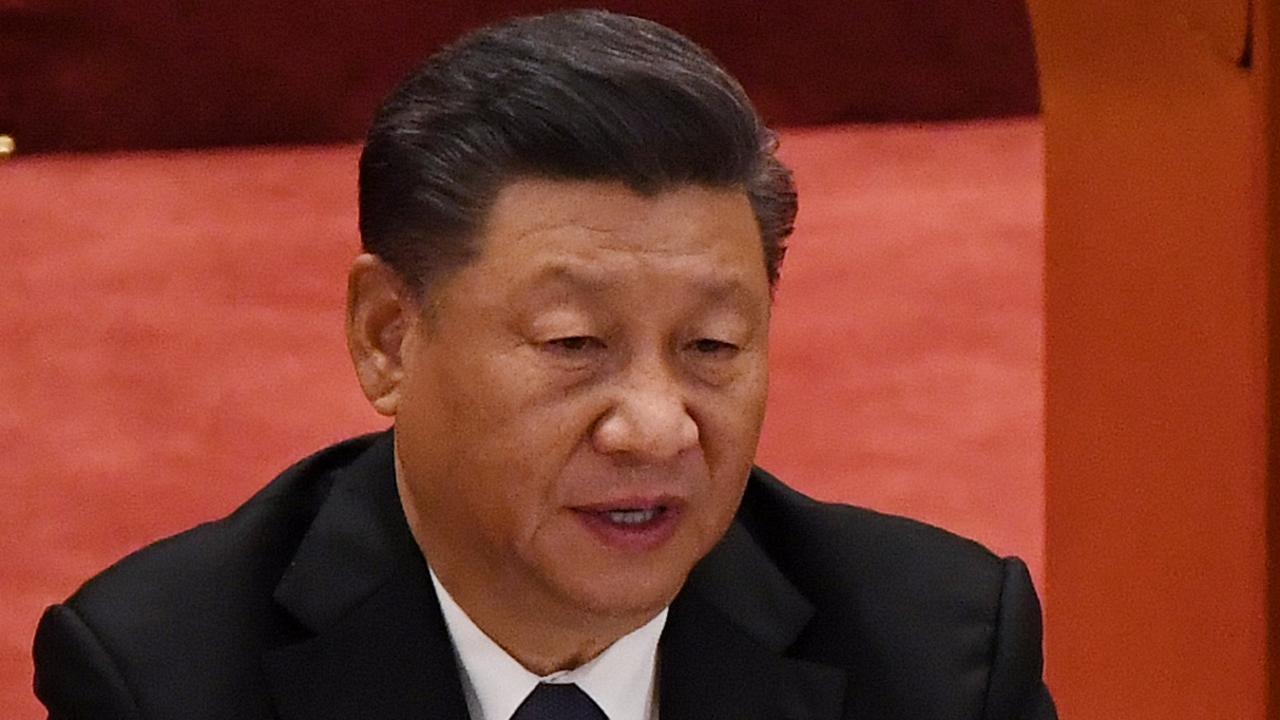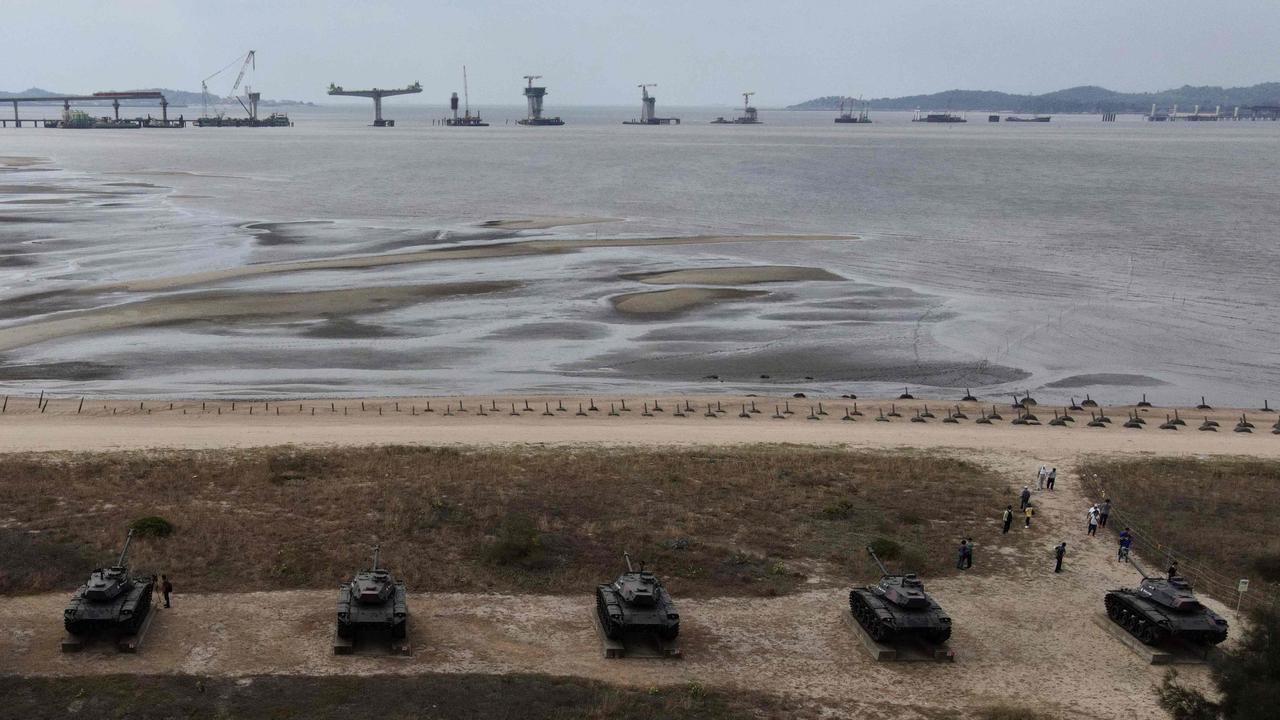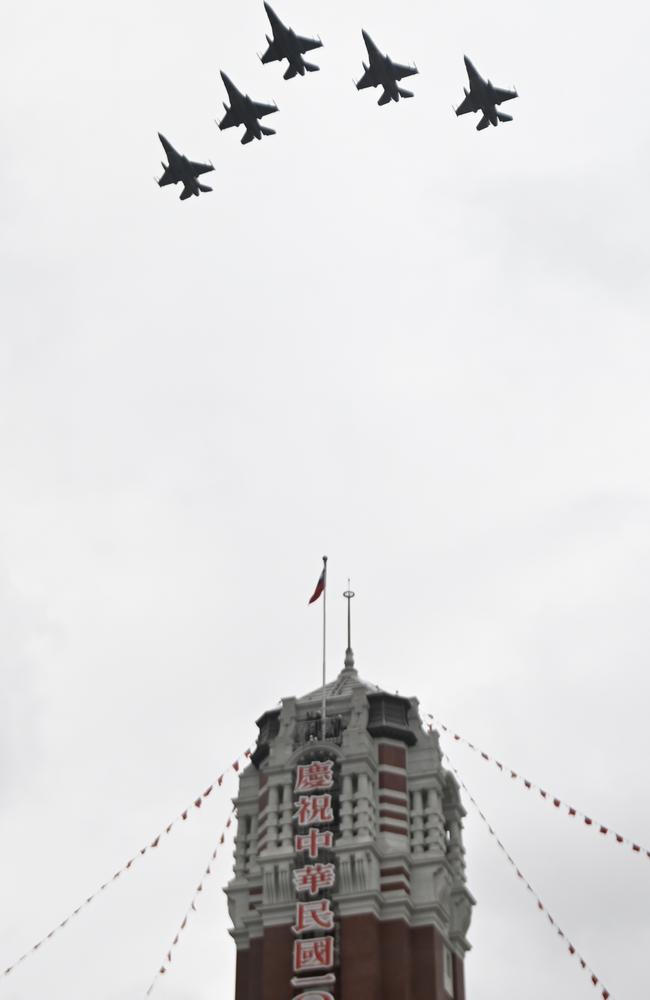‘Possible war’ looming on Australia’s doorstep as China ramps up attacks on Taiwan
Fears are mounting that war could break out on Australia’s doorstep thanks to the “growing risk” of a military showdown between powers.
A “severe crisis” could be brewing in 2021 as superpowers China and the US increasingly clash over tiny Taiwan – potentially leaving Australia exposed.
According to the Council on Foreign Relations’ (CFR) annual Preventive Priorities Survey of foreign policy experts on potential geopolitical risks in the coming year, the battle between the US and China over Taiwan has risen to a “top-tier conflict” for the first time in the survey’s 13-year history.
That finding reflects “heightened concern over the growing risk of military confrontation between major powers” following “intensifying political and economic pressure from China against Taiwan”.
RELATED: ‘Catastrophic’: Kim’s horror new ‘threat’

RELATED: China loses trust after punishing Australia
In a nutshell, there have been tensions between China and Taiwan since 1945, when the administration of Taiwan was transferred to the Republic of China from the Empire of Japan at the end of World War II.
Taiwan never surrendered in 1949 following the Chinese Civil War and since then, Taiwan has been striving for independence while China has been aggressively pursuing reunification, with President Xi Jinping threatening the use of force to achieve that goal.
‘MOST DANGEROUS FLASHPOINT’
Threats from China have been stepping up in recent months with Chinese jets increasingly intruding upon Taiwanese airspace.
And according to an alarming new CFR report, Taiwan “is becoming the most dangerous flashpoint in the world for a possible war that involves the United States, China, and probably other major powers”.
That’s the verdict of Robert D Blackwill, a CFR Henry A Kissinger senior fellow for US foreign policy, and Philip Zelikow, University of Virginia White Burkett Miller professor of history, who argue the US must change and clarify its strategy to prevent war in the region.
“The US strategic objective regarding Taiwan should be to preserve its political and economic autonomy, its dynamism as a free society, and US-allied deterrence – without triggering a Chinese attack on Taiwan,” their report states.
‘THINGS ARE MOVING FAST’
Justin Hastings, a professor in International Relations at the University of Sydney, told news.com.au that of all the potential global conflicts on the cards for 2021, he was “most concerned” about a China-Taiwan clash.
“The reason why I’m most worried about Taiwan is because the dynamic has been changing pretty rapidly over the past couple of years, and there is the sense that no one really knows (what will happen),” he said.
“The deterrents the US has always used are not as strong as they were in the past.”
Prof Hastings said China’s rhetoric was becoming more and more “bellicose”.
“They say they will resolve the Taiwan issue even if it’s not peaceful and that they reserve the right to use the military,” he said.
“Now China is rising and becoming more aggressive, it’s not clear how the US can deter China.
“There’s also the situation that China has the incentive to test US resolve under the new Biden administration and it’s not clear if China will be willing to wait forever.”
Prof Hastings said while the US did not officially recognise Taiwan, the new Biden administration had been quick to publicly support the nation of 25 million.
“It was interesting that one of the very first things the Biden administration said after two days in office was that its commitment to Taiwan was ‘rock solid’, which shows they are concerned China might try to make a move,” he said.
RELATED: ‘Desperation’: Country on the brink

That promise came after China sent dozens of warplanes into the Taiwan Strait, with Prof Hastings claiming Beijing had been well and truly testing the waters in recent months.
“China claims Taiwan was part of China in the past, but it has generally kept its military jets to the Chinese side of the line (between the two nations),” he said.
“But last year, China started to send more and more planes across the line and every time Taiwan has scrambled to meet them in case it was an actual attack.
“The point of these incursions is to tire out the air force in Taiwan because every time it uses parts and fuel and over time degrades the equipment.”
He said the Chinese military had indicated it was willing to increase its aggressive behaviours through incursions on Taiwanese airspace, boosting military fortifications in the South China Sea and moving closer to islands held by Taiwan.
“Taiwan is forced to wear itself down trying to defend itself,” Prof Hastings said.
RELATED: ‘Fire’: South China Sea at boiling point

AUSTRALIA’S ROLE
Last month, a bombshell declassified White House document revealed a US plan to potentially take on China if it attacked Taiwan, sparking fears Australia would be caught in the middle as a close US ally which has stood beside the superpower in every previous major military battle.
The 10-page US Strategic Framework for the Indo-Pacific report, approved by former president Donald Trump, was publicly released well ahead of the original 2043 deadline.
“The original document has been declassified and released, to communicate to the American people and to our allies and partners America’s enduring commitment to this vital region,” National Security Adviser Robert O’Brien said in his briefing paper cover letter.
“The United States has a long history of fighting back against repressive regimes on behalf of those who value freedom and openness. As the world’s largest economy, with the strongest military and a vibrant democracy, it is incumbent on the United States to lead from the front.”
While the document indicated the US would almost certainly defend Taiwan from a direct attack, Australia’s role in that hypothetical conflict was unclear.
But Prof Hastings said it was likely Australia would support the US indirectly, perhaps by serving as a “launching point” for American troops and weapons, although it would not be legally obliged to get involved.
“A military attack against Taiwan would not be in Australia’s interests – it would be a stark problem for Australia and would almost certainly shut down a route through the South China Sea,” he said.
Prof Hastings said if Taiwan were to declare independence, there would be “a problem on the hands” of current governments, and added that “something’s got to give” eventually.
“This situation where China is running out of options to solve it peacefully is a question that must be solved,” he said.
“And if there was a miscalculation, it could result in a conflict pretty directly.”



